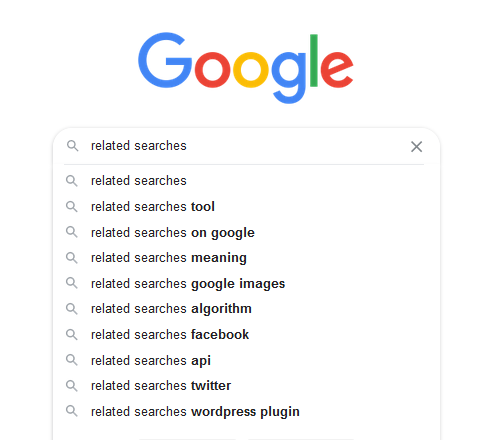What is LSI and How Can It Improve My SEO Practices?


Quick Navigation
The way we search for information has changed over time, eventually resulting in the SEO concept of LSI. Think about how libraries are organized by the Dewey Decimal system: people researching one subject will find tons of related books in the same section of the library, even if they aren’t directly about that subject, because of how the books are indexed by section and sub-section. LSI takes this idea of organizing information and makes it even more nuanced based on people’s searching habits.
Latent semantic indexing, also known as LSI, is a search engine methodology that connects related keywords to web content. Search engines process various keywords based on their context and group them together with other like terms, even if they aren’t direct synonyms.
Search engines conduct LSI by implementing a range of complex mathematical algorithms, but you can start to understand LSI by thinking about your own search habits. Imagine that you wanted to find the best Italian restaurant near you. When you type “best Italian restaurant,” the search engine won’t just pull up pages that have that exact phrase. It will try to find the most relevant result by looking for pages that also include related phrases like “homemade pasta,” “award-winning pizza,” and “meatballs” because those terms share the context of being related to Italian food.
As a search engine optimization strategy, LSI comes with many benefits. Compared to overloading a page with multiple occurrences of the same keyword, which can devalue your content, using LSI keywords allows you to use different types of related content to attract customers to your site. Some of the key advantages of implementing LSI methodology into your web design are:
Although the math behind LSI can be complex, actually finding and using LSI keywords is fairly simple. You can view related searches or even use common sense to come up with highly relevant search terms that provide more context for whatever keyword you want to target.
LSI keywords make your content more useful and relevant to your visitors. By incorporating contextual keywords into your web copy, you give customers valuable details about the topics they didn’t even know they were searching for. For example, a customer searching for athletic shoes could click on your highly ranked page and, due to the guidance of LSI terms, also learn about the best socks for various activities or discover the best places to go jogging in their area.
LSIs expand your website’s reach by targeting multiple keywords simultaneously. LSI keywords build off of one another, so if someone searches for even one of the related terms, your content will show up in their search engine results. The search engines present the overall idea of what your business does instead of honing in on one single phrase, giving you the opportunity to connect with all sorts of customers who could be interested in the concept of your business even if you don’t target their particular search term.
LSIs are now a standard part of search engine algorithms, so effective LSI keyword distribution will help you rank higher on the page, making you more visible to customers. Search engines want to pull the most relevant content for their consumers, and you can demonstrate the relevance of your business by including a range of contextual LSI keywords throughout your site.
Like any computer-run program, LSI does have some limitations that you should be aware of:
While LSI is great at discovering what search terms share the same context, it isn’t very good at determining which search terms are irrelevant. For example, if someone wanted to learn about pet dogs in Germany, they would likely get a bunch of information on German Shepherds due to the shared context of “Germany” and “dogs,” even though that isn’t what they wanted to learn about.
Search engines are constantly evolving, and they have an imperfect understanding of idioms, metaphors, and popular turns of phrase that don’t have a literal meaning. This will likely change over time as search engines learn more about how people search for various concepts.
If a single word has multiple meanings, known as polysemy, LSI can bring up pages with an unrelated context. For example, someone searching for “mouse” will get a mix of pages about the animal and pages about the piece of computer equipment.
Use these strategies and tools to find relevant LSI keywords that can help you to produce more effective SEO content:
LSI keywords should help your audience learn about the target keyword, so spend some time considering why people would search that particular term. Include keywords that relate to both learning details about the term and making purchases related to the term.
Most search engines have a “related searches” function that is a great place to mine for LSI keywords. Google, in particular, has a helpful auto-fill feature that will bring up a range of related terms. This feature is designed to help people refine their searches but is also a simple and free method for digital marketers to find highly relevant contextual terms.

Google AdWords has a feature called “Keyword Planner” that automatically brings up related keywords for a particular search, plus a range of analytic data about how competitive those keywords are and how many people search the word per month. Other analytics tools like Ubersuggest, LSI Graph, and SERP Stat have similar search features that bring up relevant keywords.
Incorporate LSI keywords throughout your website and individual content pages. You can put keywords in the actual body of an article, but you should also include LSI keywords in headings, metatext, image descriptions, and title tags.
LSI keywords can enrich your web content and make your company more visible to potential customers when appropriately used. Researching related contextual terms and including them on your web pages tells search engines about your site’s overall purpose, making it easier for all kinds of customers to discover what you have to offer.

What Is the Dofollow Link and Its Role in SEO?
SEO | 4 min read

The Top WordPress Plugins for SEO
SEO | 4 min read